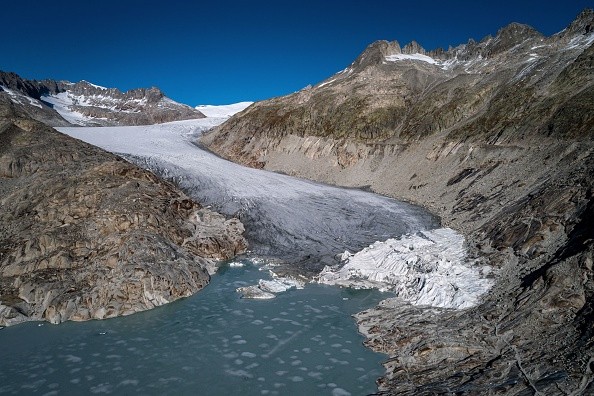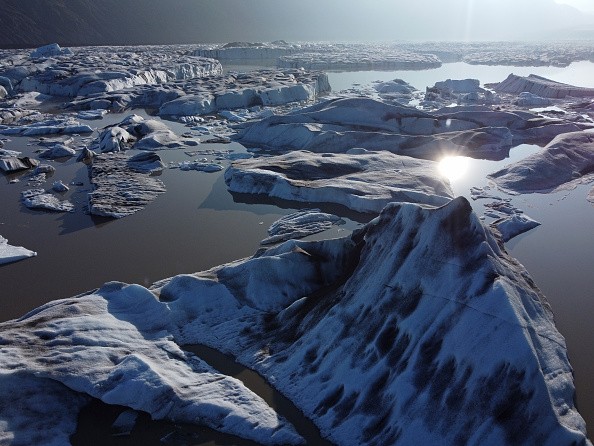On Thursday, researchers published a study that indicated that glaciers are rapidly retreating around the world owing to climate change, but they melt more quickly when they flow into a lake rather than land, which has effects on water supplies.

Examination of Glaciers
Switzerland-funded research is the first large-scale, systematic analysis of the occurrence in Himalayan glaciers and could help foresee significant water shortages and severe flood waves.
All 319 glaciers in the eastern and central Himalayas with a surface area of more than three square kilometers (1.2 square miles) were looked into in this study. These ice reserve supplies water to Ganges and Brahmaputra, providing water for half a billion people, according to Science Alert.
When a glacier's leading edge, or tongue, melts due to rising temperatures, rock debris is left behind as the glacier retreats.
There is a natural barrier formed by these "terminal moraines." A fresh lake could arise if glacier meltwater collects in the depression behind the dam.
According to a study funded by the Swiss National Science Foundation, the ice melts twice as fast if the glacier's tongue reaches into the lake.
A team of scientists used European Sentinel-2 satellites to observe how fast debris trapped on the glacier's surface travelled down the valley over the course of three years, from 2017 to 2019.
Research Findings
Researchers said: "The findings were clear: glaciers that flowed into a lake moved on average almost 20 meters per year; in other words, more than twice as fast as those that terminated on land," as per Science Alert.
To explain this acceleration, one theory is that the glacier's tongue is propped up in the water, which reduces the amount of resistance it must overcome.
This study is the first time the phenomena has been explored in detail and on a wide scale in mountain glaciers, even though scientists already knew that glaciers travel quicker when they flow into the sea or a lake.
In 20% of the Himalayan glaciers studied, lakes were discovered to have formed, which has a significant impact on both human and natural populations in the area.

Accelerating Effect of Glacial Lakes
According to the study, glaciers flow faster, which means that the water held in the ice will be depleted more quickly, which means that rivers would receive less water.
According to The Straits Times, Tobias Bolch, lead researcher from University of Saint Andrews in Scotland said: "Until now, the accelerating effect of glacial lakes has not been taken into account in predictions."
This means water shortages in the impacted regions in Asia are more likely to take place sooner than previously thought.
As a result of this research, glacial lakes may be predicted more correctly, allowing for more accurate predictions of when the terminal moraine dam is likely to breach, causing serious flood wave.
For more news, updates about glacial lakes and similar topics don't forget to follow Nature World News!
© 2025 NatureWorldNews.com All rights reserved. Do not reproduce without permission.





